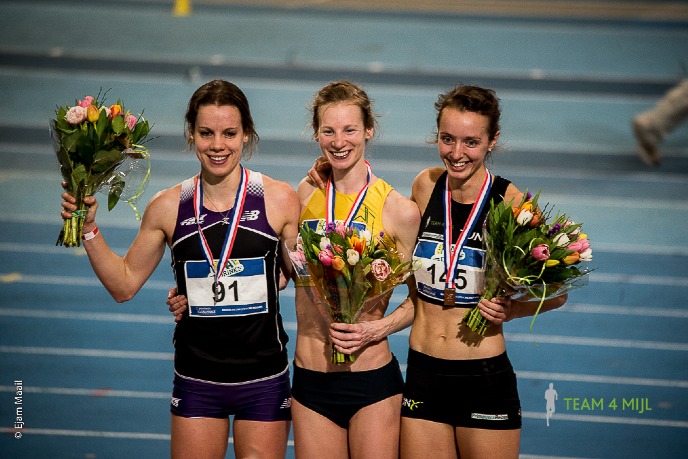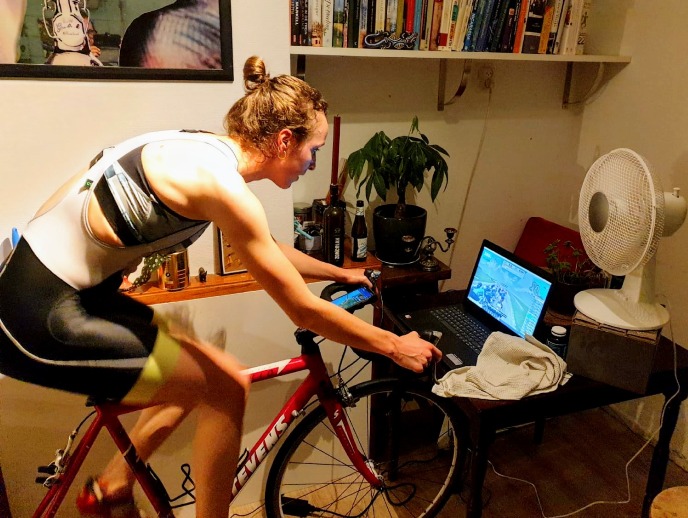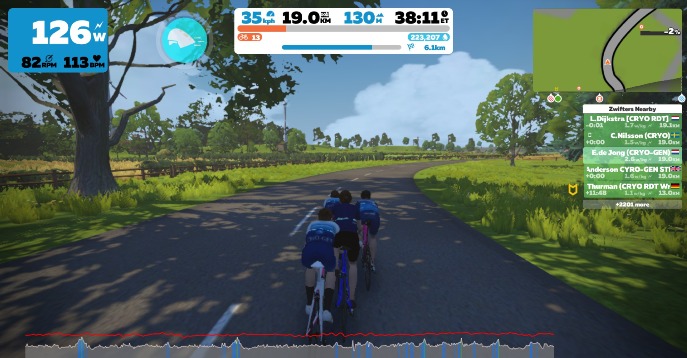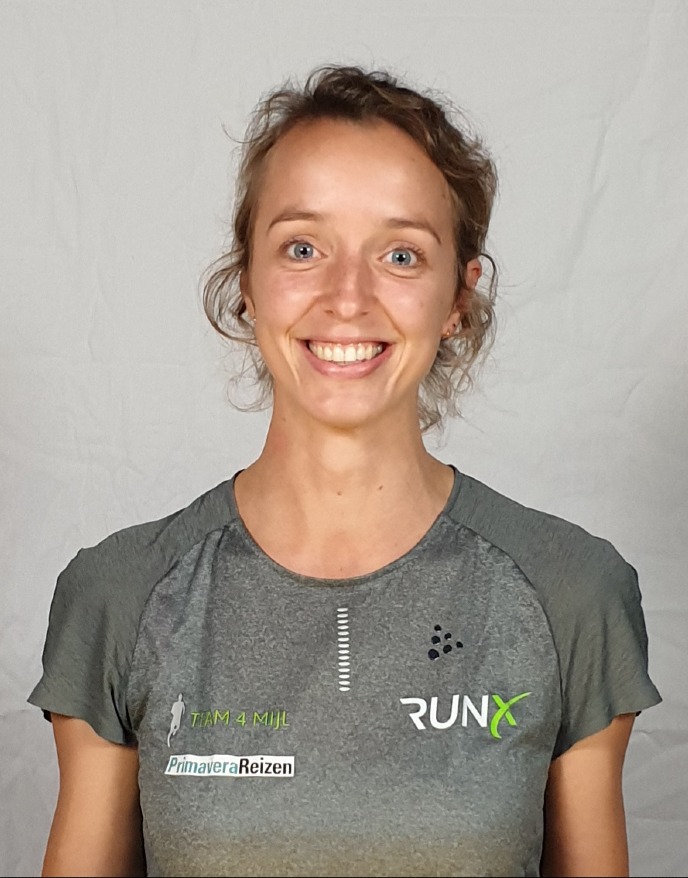Athlete Elisa de Jong standing aside due to an injury: "I'm happy I have my study in addition"
| Date: | 03 May 2021 |
| Author: | Groningen Topsportstudiestad |

What if you are a successful athlete, but you can’t perform your sport at a high level due to an injury? It happened to Elisa de Jong last year. A cartilage defect to both her knees pushed her backwards. Luckily she found distraction in her study Neurolinguistics at the UG.
Elisa de Jong became Dutch champion short distance cross country in 2019 and 2020. The prospects for more positive results were looking good. But last summer she started to have problems with her knees. A visit to the physiotherapist and manual therapist didn’t show severe problems immediately.
Elisa still performed well at the Dutch outdoor championships on Sunday the 30th of August in Utrecht, winning bronze at the 1500m. “But shortly after that my knee was swollen,” Elisa remembers. “The sports doctor suggested to perform a MRI-scan. But because I was infected with COVID-19 in October, the scan was postponed till November.”

The scan showed the reason for the knee problems: a cartilage defect to both her knees. “You don’t expect this kind of injury with running athletes,” Elisa tells. “Cartilage defect is more common with football or field hockey because of the more diverse movements. With running it only goes one way.”
Emotional
The diagnosis did hit Elisa hard. “I’m very emotional,” Elisa explains. “Mentally it was difficult for a while. It was also hard because I couldn’t practice any other sports at that moment. Like most athletes I can’t sit still.” The fact that it is unknown how the injury came about made it more difficult for Elisa to accept.
Elisa couldn’t start the rehabilitation immediately because she also got infections in her knees. Elisa: “It felt like I was limited in my freedom.” In December the infections were treated with corticosteroid injections and she could finally start the rehabilitation. “It is a nasty injury. It is not clear what the final outcome will be. There is a possibility that I cannot run any serious competitions again.”
The future regarding running on a high level is uncertain for Elisa. “I’m running a little bit now, but it is not much,” she tells. “Running is a very specific movement. Each step the knee gets a shock. Of course I’m upset if I can’t race again, but a worn knee is not what I want. I don’t want to cross that line.”

Zwift
Elisa has in the meantime found an alternative for running: the racing bike. Not only outside, but also in her living room. She uses Zwift, an app in which you can ride in a virtual environment. “They also organize competitions,” Elisa says. She herself also competes. “I was asked by an E-team, Team CRYO-GEN. They compete at the second highest level.”
“Zwift is used a lot by bicycle-racers and triathletes to stay fit. It gives you a little bit the feeling of competing in a race. It is a different way of pushing boundaries. Maybe in future I will sign up to a cycling club to practice. That’s what I miss: practicing together. Who knows which part I can play in cycling,” Elisa already dreams carefully.

Neurolinguistics
Elisa also gets support out of her study neurolinguistics at the UG since the start of her knee-injury. “In the beginning it was difficult to focus. The diagnosis controlled my thoughts. The second semester was not easy, but happily I succeeded. Now it feels good to have my study. Otherwise I had wouldn’t have anything besides cycling.”
Before Elisa started Neurolinguistics, she worked for five years, three days a week, as a speech therapist in the neurorehabilitation. “I had been thinking about doing a master’s for some time. Finally I decided to do it, not knowing that I had to stop running.”
Exam
“Last September I started the pre-master. Starting from coming September I will continue with the master’s degree.” Elisa just finished an exam statistics. “It wasn’t easy but I think I passed the exam. Luckily it was a physical exam, not online. This way I could see my fellow students for a while again.”
“I still have to follow one course for the last semester of the pre-master. This gives me the opportunity to work besides the study. I’ll start teaching neurolinguistic courses at the Hanzehogeschool. It is nice that I can use my working experience here.”
Study counselor
Elisa wants to give a message to fellow elite athletes who also have to deal with a nasty injury. “I know, also out of former injuries, that it’s not easy to deal with this and that it’s important to talk to your study counselor or elite sports coordinator about this. It’s normal that you have problems with concentrating and that your study results might be lower for a while.”
“I think it’s good to be open about this. It can also be a good idea to visit a sports psychologist who can support you. I always wanted to solve my own problems, but now I think it would have been better if I would have asked for help from my study counselor or elite sports coordinator.”


